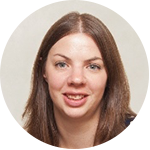
PACT-3 (2021-2023)
PACT-3 explores whether PACT helps to boost children’s early language and literacy skills.
PACT-3 involves 372 children and their parents across 43 local authority maintained school-based nursery settings in Greater Manchester, Blackpool and Lancashire.
View the PACT-3 timeline to see where the project is up to and what lies ahead: PACT-3 timeline.
If you would like to find out more about our plans for PACT-3, please see the below frequently asked questions.
You can also view the PACT-3 Summer Newsletter (PDF).
Frequently asked questions
What happens in PACT-3?
From April to September 2021, the team at The University of Manchester worked closely with nurseries to support them in reaching out to families to discuss taking part in the PACT project.
In September 2021, the children recruited onto PACT-3 took part in assessments that were made up of game-like language activities. Shortly after, families were put at random into one of two groups.
One group was given the PACT language programme and asked to work on the programme at home every weekday (five days a week) for about 20 minutes, for 30 weeks.
The other group were asked to carry on as normal (not deliver the PACT programme) and were given a box of children’s storybooks at the end of nursery.
View the PACT-3 timeline to see where the project is up to and what lies ahead: PACT-3 timeline.
How will you know if the programme worked?
Children’s language skills were measured before families started the programme and we then measured them again at the end of the 30 weeks.
Children were then seen again approximately 12 months after the programme had finished, at the end of their reception year of school, to see whether there are any delayed effects of the programme.
This will help us to see whether the programme made a difference to children’s development, and what differences and impact the programme had on language development.
How did you decide who is in each group?
The best way to test whether a teaching programme works is to use a randomised controlled trial (RCT). We are using this to see whether PACT works.
A key feature of an RCT is that participants are randomly put in different groups. This means that families have an equal chance of being in either group: this is not decided by the researchers or the schools – allocation is completely random.
By doing this, we can reduce the influence of things that may have an effect on our programme outcome – this can be things like the child’s age and the number of hours they have in nursery.
We can then be sure that our results are because of PACT rather than something else. It is really important that families stay in the group they are put into so that we can be sure of our findings.
Did families in the PACT group receive training to help them run the programme?
Parents in the PACT group were asked to come to a short group training session (1.5-2 hours) via a video conferencing platform, run by a member of the University of Manchester research team.
Families received the first set of the teaching programme materials prior to the training.
Do parents need any additional materials to run PACT?
Everything parents need to deliver the teaching programme is provided in the activity packs.
We do ask parents delivering the PACT intervention to record each session that they have done with their child and whether the child enjoyed the session. We ask that parents do this via PACT app.
Parents are shown how to access and use the app during the training sessions. The app is available on many IOS, Android and computer platforms.
If a parent is unable to access the app, they are encouraged to get in touch with the PACT lead at their child’s nursery, who should be able to offer support, or to contact the research team at Manchester for further support and guidance.
Was the first language assessment done with the children before randomisation?
PACT leads and nursery staff undertook the first language assessment with the children before randomisation took place.
It is important to note that group allocation was not decided by their performance on the assessments – it was completely random.
What are the tests/assessments that the children take part in?
In PACT-3, children were assessed at 3 time points:
- at the beginning of the project (September/October 2021);
- at the end of nursery (June/July 2022);
- at the end of Reception (May/June 2023).
Some of the assessments were undertaken by PACT leads and teaching staff in school.
This included the LanguageScreen app, which looked at children’s language skills. LanguageScreen takes approximately 10 minutes.
At the end of nursery and Reception, the research team also visited children in school for other language assessments.
Why are only school-based nurseries involved in PACT-3?
In the PACT-2 trial (2019-2021), we worked with 450 families from 47 nurseries. Some of those nurseries were not attached to schools.
In those settings, PACT children went to a large number of different schools for reception year, and by the time of our last assessment, the number of settings in the project jumped up to 113. This meant it was very difficult to follow some of our children in their new schools.
For this reason, we have recruited school-based nurseries in the new PACT-3 trial as a way of minimising the number of new settings that join the project at reception (by virtue of a participant moving to their school).
Can parents who are not involved in the project get hold of this programme?
Unfortunately, because we are still testing whether the programme works, it is not currently available to parents outside of the project.
Meet the team
The University of Manchester
Dr Kelly Burgoyne
 Kelly is a Lecturer in Psychology of Education at The University of Manchester.
Kelly is a Lecturer in Psychology of Education at The University of Manchester.
Her research is focused on cognitive development, particularly the development of reading and language skills, and the nature and causes of children’s learning difficulties.
Kelly has particular experience in the development and evaluation of interventions to support children’s reading and language development.
Dr Laura Boundy
Laura is a Postdoctoral Research Associate at the University of Manchester. Her PhD research focused on how children’s early communication skills and interactions with their caregivers may help with language development, with particular focus on their use of gestures.
Before joining PACT, Laura worked at the University of Manchester Child Study Centre as part of the LuCiD team, and has significant experience working on research projects focused on child language, social and cognitive development.
Dr Nicola Lester
 Nicola is a Research Assistant on the PACT-3 project.
Nicola is a Research Assistant on the PACT-3 project.
Her PhD research focused on promoting language learning opportunities for children from ethnic minority populations, and the role that linguistic input and context have in shaping the early language development of young children.
Before joining PACT, Nicola completed a BSc Psychology degree and an MRes Psychology at The University of Manchester, then joined the Child Study Centre as a PhD researcher.
Prior to her work in research, Nicola worked in mainstream primary schools for four years.
Durham University team
Vic Menzies
 Vic is an experienced education trial coordinator and researcher with extensive experience of running large trials in nurseries, primary and secondary schools, including the EEF EasyPeasy and Maths Champions randomised controlled trials.
Vic is an experienced education trial coordinator and researcher with extensive experience of running large trials in nurseries, primary and secondary schools, including the EEF EasyPeasy and Maths Champions randomised controlled trials.
Prior to moving to Durham, Vic’s previous research included studies of early number development in Scotland and the effect of phonological awareness and training on children’s early reading skills.
Dr Helen Cramman
 Helen is Research Team Lead for the Research Hub of the School of Education (RHoSE) at Durham University and has experience of leading and delivering large scale surveys, focus groups and interviews as well as managing large trials, including EEF EasyPeasy.
Helen is Research Team Lead for the Research Hub of the School of Education (RHoSE) at Durham University and has experience of leading and delivering large scale surveys, focus groups and interviews as well as managing large trials, including EEF EasyPeasy.
Helen has led a range of studies in the early years with projects including an Innovate UK funded project looking at innovative methods for teaching computer science to reception pupils. She has published on the development of language and number skills in the early years (Boereboom 2018, Copping 2017, Cramman, 2018). Helen also has experience of providing CPD to primary educators.
Paivi Eerola
 Paivi is a Research Assistant at Durham University. She has an MPhil in Musicology and an MA in Music Education from the University of Jyvaskyla, Finland. Paivi is experienced in qualitative research methods through running interviews and surveys and analysing qualitative data.
Paivi is a Research Assistant at Durham University. She has an MPhil in Musicology and an MA in Music Education from the University of Jyvaskyla, Finland. Paivi is experienced in qualitative research methods through running interviews and surveys and analysing qualitative data.
Paivi has supported many evaluations covering a wide age range of pupils, including evaluation of university summer schools schemes aimed at Year 12 pupils; the change in practical science exams at GCSE and A levels; and singing leadership training for primary school teachers. She has published on the social impact of music education (2014) and widening participation in higher education (Younger & Eerola, 2018).
Others
Other members of the Durham University Research Team include Dr Adetayo Kasim and Dr Nasima Akhter, who are the statisticians analysing the data.
Lyn Robinson-Smith from the York Trials Unit at the University of York will also provide expertise in randomised controlled trials in early years’ settings.
Professor Christine Merrell will support the process evaluation as well as the interpretation of the quantitative findings.
Dr Julia Rattray will provide psychology expertise to support the delivery of the assessments.
Contact us
If you have any questions about our project, please get in touch.
Kelly Burgoyne – PACT Project Lead
email: kelly.burgoyne@manchester.ac.uk
Laura Boundy – PACT Research Assistant
email: pact@manchester.ac.uk
Nicola Lester – PACT Research Assistant
email: pact@manchester.ac.uk
Vic Menzies – Durham University Research Trial Officer
Email: victoria.menzies@durham.ac.uk
tel: 0191 334 4177
Twitter: @PACTLanguage
